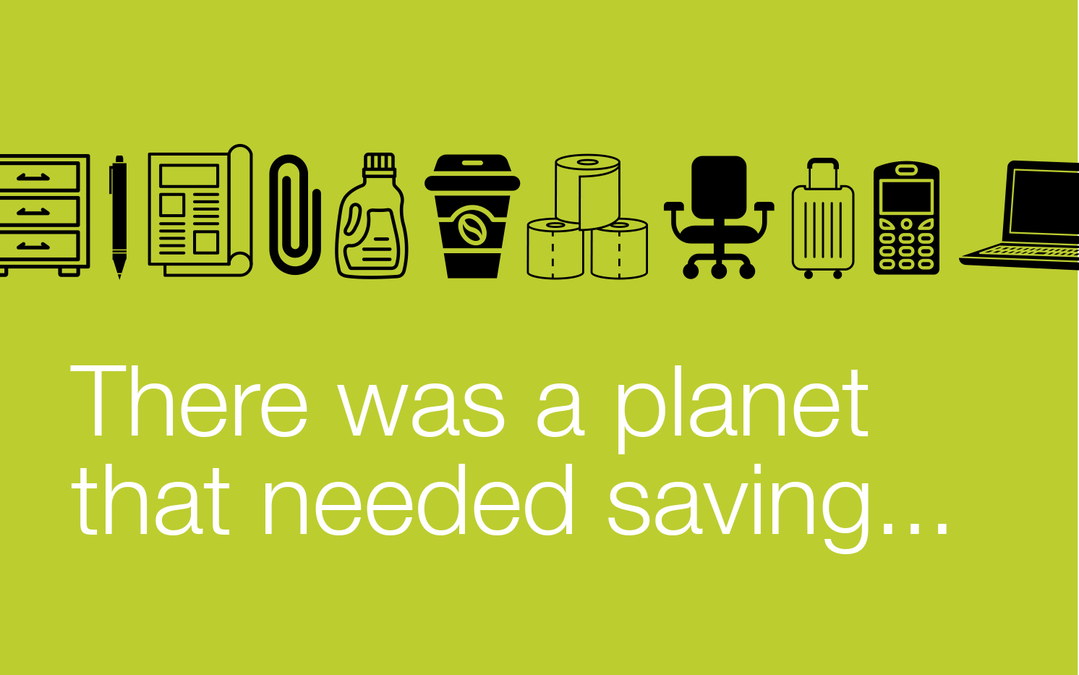
Scope 1 emissions (from your gas boilers and vehicles) are expensive to solve. Switching to heat pumps and electric vehicles costs a lot now, but over time, with scale production, these will become economical.
Scope 2 emissions are from the electricity that you use. This should be an easy fix by switching provider to all renewable – at the same cost as fossil fuelled power.
But Scope 3 is trickier, being the emissions that go into making and moving all of the stuff that we buy on a daily basis. It is the accumulation of millions of purchasing decisions every hour – often made quickly without time for extensive research.
While solutions do exist that are cost-competitive with high emissions solutions, they are not advertised as widely as high carbon options – often because historical providers are using their marketing budgets to greenwash so that they don’t need to change their offerings. So it is up to all of us to look for the lower emissions solutions.
We think of scope 3 emissions as Everybody’s and Nobody’s Problem.
There were four people named Everybody, Somebody, Anybody and Nobody. There was a planet that needed saving and Everybody was asked to do it. Everybody was sure Somebody would do it.
Anybody could have done it, but Nobody did it.
Somebody got angry about that, because it was Everybody’s job.
Everybody thought Anybody could do it, but Nobody realised that Everybody wouldn’t do it.
It ended up that Everybody blamed Somebody when Nobody did what Anybody could have done.
Adapted from Charles Osgood’s poem “Everybody, Somebody, Anybody, and Nobody.”
There is quite a lot that you can do for your organisation (and personally) to reduce Scope 3 emissions.
-
- Buy/use less stuff. Paperless offices, for example, avoid the need for cutting down trees and require fewer filing cabinets.
- Choose lower carbon emissions equivalents. For example, meat has very high carbon emissions (mostly due to cow burps) but vegetarian alternatives are gaining in popularity, with some office canteens going entirely vegetarian (e.g. the Dutch Development Bank FMO).
- Buy used (if the quality is good enough).
- Specify remanufactured. Remanufactured products have been brought back to as-new condition and come with a warranty, so offer large carbon and cost savings without having to compromise on quality (e.g. Rype’s office furniture)
But beware of the terms recycled and recyclable. Recycling means breaking down items into their molecules and then reshaping and refinishing them, which can result in almost as much carbon emissions as virgin materials. Recyclable means that it can be recycled but it is up to you to do it – so make sure you can.
There is a lot you can do to reduce your Scope 3 emissions. But it is a shared responsibility, so rather then digging deep into your supply chains, you should make sure that your suppliers are also substantially reducing their carbon emissions – which will flow through to a lower Scope 3 for you.
We know this is a complex topic, so reach out to us at contact@rypeoffice.com or call 033 3358 3330 if you would like to talk it through. We are here to help.

